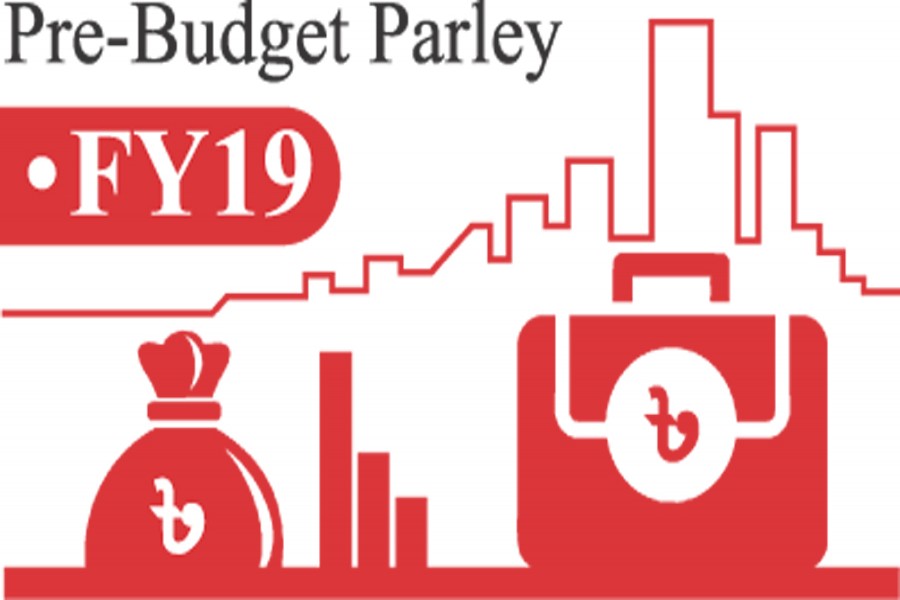There is a need for recognising women's unpaid work that usually falls outside the boundary of production, representatives of NGOs (non-governmental organisations) said Thursday.
They said that the size of GDP (gross domestic product) will increase significantly if such contribution by womenfolk is measured.
They made the call at a pre-budget discussion with the finance minister AMA Muhith at the secretariat in Dhaka.
But the system of national accounting, which is followed by each country, to measure GDP is yet to take women's contribution into consideration.
Even the latest version of the national accounting did not address it, although many women advocacy groups across the globe have been pressing for it.
Officials at the state-run Bangladesh Bureau of Statistics, the national statistical agency, said that the problem lies with debiting and crediting the contributions as someone much pay for it.
Shaheen Anam, executive director at the Manusher Jonno Foundation, said this would enhance the dignity of women in the society, while raising the GDP as well.
The finance minister, however, showed his interest in the matter.
A number of NGO representatives were, however, critical of the discontinuation of the district budgets and urged the government to reintroduce it.
Some of the representatives aired concern over the growing automation and uses of artificial intelligences in the readymade garment industry.
They urged the government to take measures so that the female workers can be proficient with such new technologies.
Country director of ActionAid Bangladesh Farah Kabir said the new technologies had significant impact on the labour force.
"Such technologies can even reduce the requirement for manpower.
Giving an example, she said that one person can perform the job of five.
Dr Jafarullah Chowdhury, founder of Gonoshasthaya Kendra, said that the budget of the ministry of health should be cut because as he believes that fund increase is not solution.
"In my view, management is very much important, not budget," he said while delivering his speech.
He also suggested a unique solution to increasing health services in city wards.
"Appoint just five doctors in each city ward and it will help reduce crowd at the doctors' chambers in the evening," he said.
He said the government would require around Tk 2.0 billion for this purpose for piloting it in the city's 100 wards.
He also suggested the dual services of the government employees, saying the attorney general was also practicing for his personal clients.
Dr Chowdhury said the tax-exemption threshold should be at least Tk 500,000.
"Look at a person with diabetic ailments who needs at least Tk 100,000 a year. So my suggestion is tax-free ceiling should be raised to Tk 500,000." SM Monjur Rashid, policy, advocacy and campaign manager at Oxfam, underlined the need for effective utilisation for funds meant for the char people.
The finance minister said that the NGOs are on a strong footing despite the reduction in foreign donations.
Lauding the role of NGOs in poverty alleviation, the minister said a significant number of people were still poor in the country.
The revenue collection remains slower than expected, he said without elaborating
Finance secretary Muslim Chowdhury and other high officials of the division were present during the meeting.


